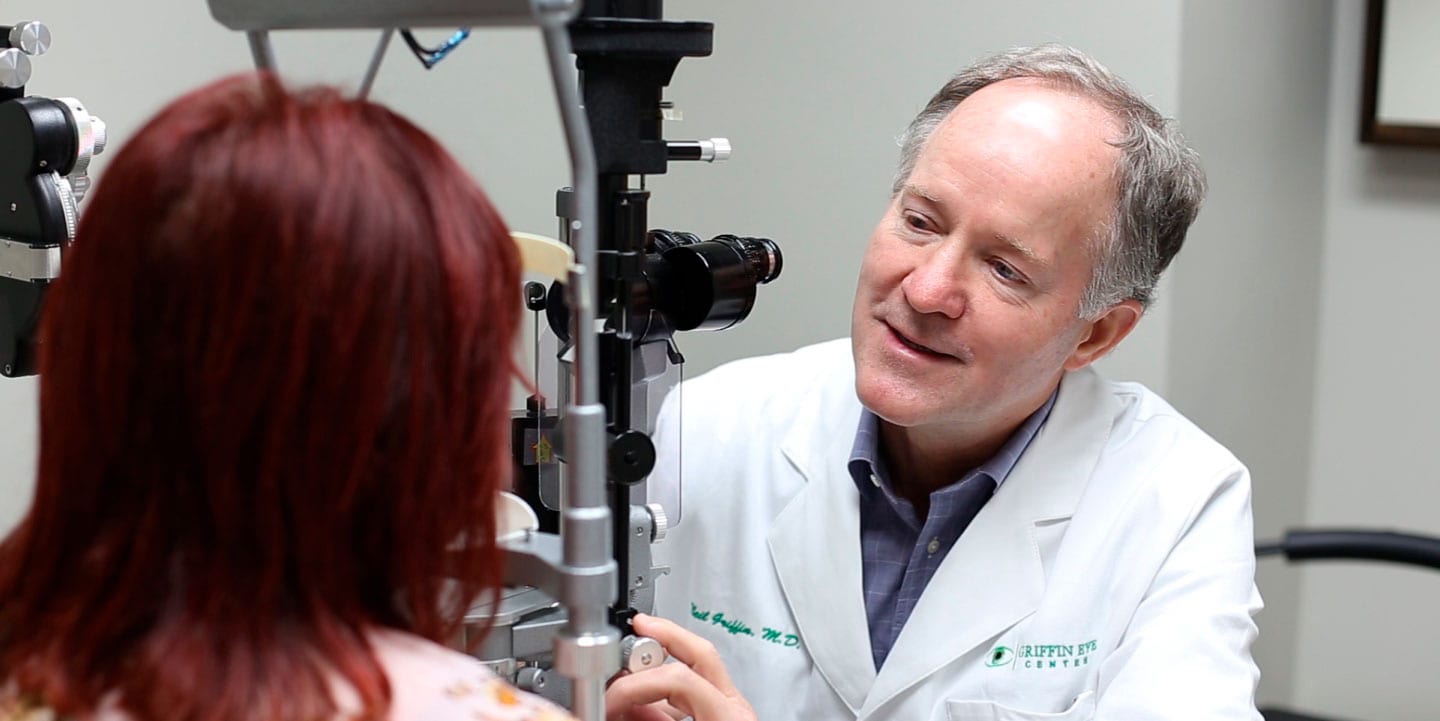Three Things Patients Should Know About Cataracts
Approximately 25 million Americans have cataracts, which causes cloudy, blurry or dim vision and often develops with advancing age. This June, Griffin Eye Center joins the American Academy of Ophthalmology in observing Cataract Awareness Month by sharing three things everyone should know about the condition and its treatment.
As everyone grows older, the lenses of their eyes thicken and become cloudier. Eventually, they may find it more difficult to read street signs. Colors may seem dull. These symptoms may signal cataracts, which affect about 70 percent of people by age 75. Fortunately, cataracts can be corrected with surgery. Ophthalmologists, physicians who specialize in medical and surgical eye care, perform around three million cataract surgeries each year to restore vision to those patients. Get an idea of what someone with cataracts might experience with this cataract vision simulator. The following are facts people should know about the condition.
1. Age is not the only risk factor for cataracts. Though most everyone will develop cataracts with age, recent studies show that lifestyle and behavior can influence when and how severely you develop cataracts. Diabetes, extensive exposure to sunlight, smoking, obesity, high blood pressure and certain ethnicities have all been linked to increased risk of cataracts. Eye injuries, prior eye surgery and long-term use of steroid medication can also result in cataracts. If you have any of these or other risk factors, talk to an ophthalmologist.
2. Cataracts cannot be prevented, but you can lower your risk. Wearing UV-blocking sunglasses and brimmed hats when outside can help. Several studies suggest that eating more vitamin C-rich foods may delay how fast cataracts form. Also, avoid smoking cigarettes, which have been shown to increase the risk of cataract development.
3. Surgery may help improve more than just your vision. During the procedure, the natural clouded lens is replaced with an artificial lens called an intraocular lens, which should improve your vision significantly. Patients have a variety of lenses to choose from, each with different benefits. Studies have shown that cataract surgery can improve quality of life and reduce the risk of falling. If cataracts are interfering with your ability to see well, consider asking your ophthalmologist about cataract surgery.
A life-changing surgery:
“There are not enough adjectives to describe how great my experience was with Griffin Eye Center! Every single member of this group was at the top of their game – each step of the way explained, with great follow through. I had cataract surgery on both eyes, and they accommodated a tight schedule due to another surgery coming up. I asked for close-up vision correction and eyeglasses for far away because I do lots of needlework. For me it was the perfect plan, and they measured the distance I held my work. I can thread a needle without glasses! I am a happy camper!!”- Gary G.
Dr. Neil B. Griffin is one of the leading cataract ophthalmologists in the Myrtle Beach, South Carolina area and specializes in cataract and LASIK surgery. He is committed to providing world class surgical technology and the most advanced vision diagnostics to the South and North Carolina area. Griffin Eye Center offers the latest in cataract surgery with the most advanced Intra-Ocular Lenses available and the only state-of-the-art on-site LASIK suite in the local region for the best Laser Vision Correction possible. Learn more: https://griffineyecenter.com/
